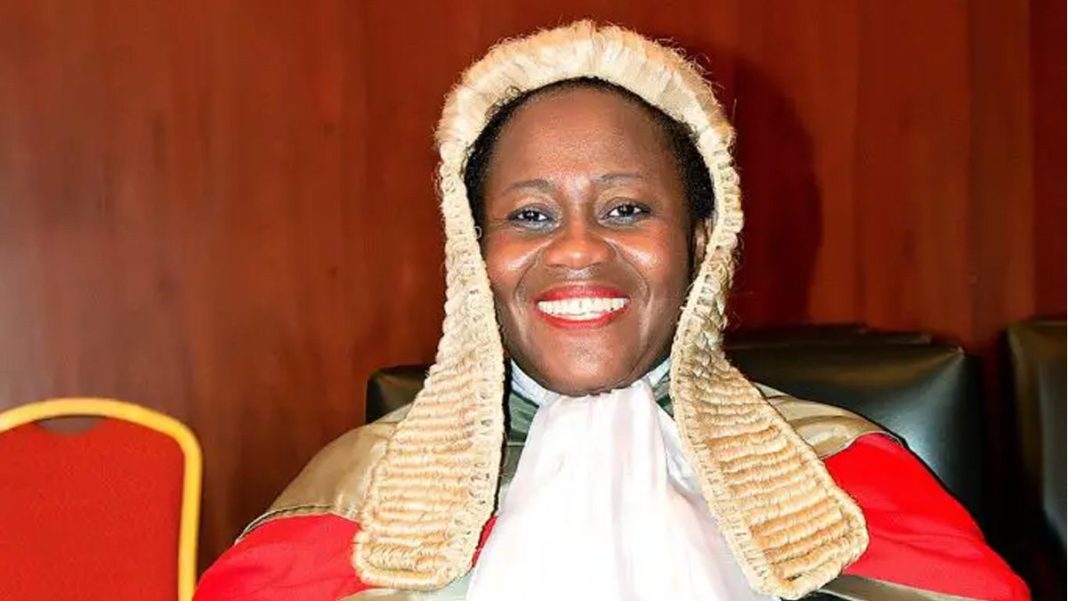Ghana’s democratic foundations are under fierce scrutiny following what the Centre for Democratic Movement (CDM) calls a “constitutionally questionable decision” by President John Mahama to suspend Chief Justice Gertrude Araba Sackey Torkornoo.
In a press statement, it warns that the president’s move constitutes a “serious breach of constitutional norms, a direct encroachment on judicial independence, and a dangerous politicisation of the judiciary.”
The suspension, announced before the constitutionally mandated process had been concluded, has sparked outrage within Ghana’s civic and legal communities and now threatens to attract international condemnation.
“This action,” CDM asserts, “undermines the institutional integrity of the office and erodes the constitutional protections afforded to the judiciary.”
At the centre of the storm is the investigative committee tasked with assessing the conduct of the Chief Justice.
According to the CDM, its composition raises “legitimate concerns about institutional neutrality and procedural integrity.”
The organisation points to glaring political ties among committee members, describing the body as “marred by political affiliations and past controversies.”
Among those singled out is Mr. Daniel Yaw Domelevo, former Auditor-General, whose appointment by President Mahama during his previous term and public clashes with political actors now cast “doubt on his suitability for such a delicate role.”
Justice Gabriel Pwamang, chair of the committee and a 2015 appointee of President Mahama, is noted for his respected judicial career—but his close association with the appointing authority makes his involvement, in CDM’s view, untenable in a matter “involving the judiciary’s top office.”
The inclusion of Professor James Sefah-Dzisah, described as “one of several NDC-aligned lecturers who publicly opposed the compilation of a new voters’ register ahead of the 2020 elections,” further deepens the perception of a politicised process.
Read also: Defending constitutionalism: Condemnation of the strange suspension of Chief Justice
“His inclusion on the committee fuels the perception of political motive,” the CDM warns.
Although Justice Asiedu, a nominee of President Akufo-Addo, is also on the committee, the CDM insists that “this lone balance does little to counter the perception that the body is overwhelmingly tilted toward the Executive’s interests.”
At issue is not only the suspension of the Chief Justice, but also how the President appears to have bypassed established constitutional safeguards.
The 1992 Constitution of Ghana, under Article 146, provides that justices may only be removed for “stated misbehaviour, incompetence, or inability to perform the functions of office due to infirmity of mind or body,” and requires a prima facie case to be established in consultation with the Council of State before any such action.
“The President’s decision to suspend the Chief Justice before the conclusion of a constitutionally prescribed process constitutes a breach of the express procedural requirements of Article 146,” the CDM affirms.
It further argues that the President’s use of discretion in this matter violates Article 296(c) of the Constitution, which demands that discretionary powers be exercised “in accordance with clearly published criteria or regulations.”
Citing Ransford France v. Attorney-General, the CDM recalls the Supreme Court’s position that “discretionary power by administrative and quasi-judicial authorities must comply with Article 296.”
In this case, the organisation says, “the stakes involve the very independence of the judiciary.”
The CDM accuses the Mahama administration of setting a “perilous precedent,” one that erodes public confidence in judicial impartiality and dangerously encourages executive overreach.
“It fosters mistrust in the judicial system, and weakens constitutional checks and balances,” the statement adds.
The crisis, the CDM warns, is not just domestic. Ghana is on the verge of breaching its obligations under multiple international and regional frameworks.
These include the United Nations Basic Principles on the Independence of the Judiciary (1985) and Article 26 of the African Charter on Human and Peoples’ Rights (ACHPR), both of which prohibit arbitrary suspension or removal of judges and require fair, impartial disciplinary processes.
“By disregarding these standards,” the CDM says, “Ghana not only risks damaging its democratic reputation but also undermines its obligations as a respected member of the international legal order.”
Calling for an immediate reversal of the suspension, the CDM demands the “dissolution and reconstitution of the investigative committee,” and urges Parliament to launch an inquiry into what it describes as a blatant abuse of power.
It also calls on “all defenders of constitutional democracy—including the Ghana Bar Association, civil society, religious and traditional leaders, and the media—to rise above partisanship and defend the foundational principles of our Republic.”
“This moment demands vigilance, not silence,” the CDM warns in closing.
“Ghana’s democratic future cannot be bartered for political gain. The Constitution must not be weaponised, and the judiciary must not be punished for its independence.”
DISCLAIMER: The Views, Comments, Opinions, Contributions and Statements made by Readers and Contributors on this platform do not necessarily represent the views or policy of Multimedia Group Limited.
